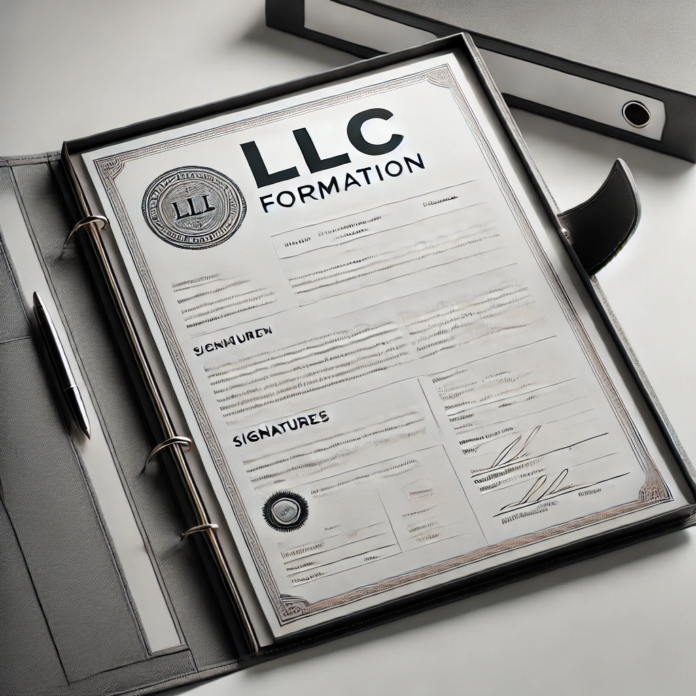Choosing the best state to incorporate your business is a critical decision that can significantly impact your company’s financial health and operational success. Entrepreneurs must consider incorporation fees, annual maintenance costs, tax obligations, legal protections, and operational factors such as infrastructure and local talent. This guide explores the most popular states for incorporation in 2025, including Delaware, Wyoming, Nevada, and Puerto Rico, weighing their benefits and drawbacks to help you make an informed choice.
1. Delaware: The Longstanding Favorite for Incorporation
Delaware remains the gold standard for incorporation in the U.S., particularly for larger businesses. Over 60% of Fortune 500 companies are incorporated in Delaware.
Advantages
• Business-Friendly Laws: Delaware’s Court of Chancery specializes in corporate law, providing expertise and efficiency in resolving business disputes.
• Privacy Protections: Delaware does not require directors or shareholders to be listed in public records.
• Flexible Corporate Structure: Businesses have significant flexibility in organizing their management structures.
Disadvantages
• Higher Annual Fees: Delaware’s Franchise Tax can be costly, particularly for large companies or those issuing many shares.
• Nonresident Requirements: If you don’t operate in Delaware, you’ll still need to register as a foreign entity in your home state, adding extra costs.
2. Wyoming: The Underrated Gem for Small Businesses
Wyoming is becoming increasingly popular for its low costs and strong privacy protections, making it an ideal choice for small businesses and startups.
Advantages
• Low Costs: Wyoming has low incorporation fees and no state income or franchise taxes.
• Privacy: Shareholders and directors are not publicly listed, offering robust privacy protections.
• Pro-Business Climate: Wyoming offers simplified regulations and affordable compliance costs.
Disadvantages
• Limited Corporate Law Precedents: Compared to Delaware, Wyoming lacks a deep body of corporate law, which could be a disadvantage for businesses expecting complex legal challenges.
3. Nevada: A Tax Haven for Entrepreneurs
Nevada markets itself as a pro-business state, offering tax advantages and privacy protections similar to Wyoming.
Advantages
• No State Taxes: Nevada does not impose personal or corporate income taxes.
• Business-Friendly Courts: Like Delaware, Nevada has a specialized court system for business disputes.
• Privacy Protections: Similar to Wyoming, Nevada does not require directors or shareholders to be listed publicly.
Disadvantages
• Higher Costs: Nevada’s incorporation fees and annual renewal costs are higher than Wyoming’s.
• Overhyped Benefits: Many tax benefits apply only to companies operating within Nevada, limiting its appeal for out-of-state businesses.
4. Texas: A Rising Star for Mid-Sized Businesses
Texas offers a strong economy, a large talent pool, and relatively low taxes, making it an attractive option for businesses planning to operate within the state.
Advantages
• No Corporate Income Tax: Texas has no state corporate income tax, although there is a modest franchise tax.
• Economic Growth: Texas is one of the fastest-growing states in terms of population and economy, providing ample opportunities for business expansion.
• Infrastructure: The state’s extensive infrastructure supports businesses across various industries.
Disadvantages
• Higher Operating Costs: While tax-friendly, Texas’s incorporation fees and operating costs can be higher than those in Wyoming or Nevada.
5. Puerto Rico: A Unique Option for Tax Benefits
Incorporating in Puerto Rico is an unconventional choice, but it offers unparalleled tax advantages for certain businesses.
Advantages
• No Federal Taxes: Puerto Rico is a U.S. territory, so businesses can take advantage of exemptions from federal income taxes if they meet certain criteria.
• Tax Incentives: Programs like Act 60 provide significant tax breaks, including a 4% corporate income tax rate and exemptions on dividends and capital gains.
Disadvantages
• Infrastructure Challenges: Puerto Rico’s aging electrical grid and frequent power outages can disrupt business operations.
• Residency Requirements: To qualify for many tax benefits, business owners must establish residency in Puerto Rico, which may not be practical for everyone.
Key Factors to Consider
When choosing where to incorporate, consider the following:
1. Taxes: Evaluate both state income taxes and franchise taxes.
2. Costs: Incorporation fees, annual reporting fees, and compliance costs vary significantly by state.
3. Legal Protections: States like Delaware offer specialized courts and a robust legal framework for corporations.
4. Privacy: States like Wyoming and Nevada prioritize business privacy.
5. Operational Needs: Consider infrastructure, talent availability, and proximity to markets.
Final Verdict
• Best for Large Corporations: Delaware remains the leader for its corporate-friendly laws and established legal precedents.
• Best for Small Businesses and Startups: Wyoming offers the most affordable and straightforward option for entrepreneurs prioritizing low costs and privacy.
• Best for Tax Optimization: Puerto Rico provides unparalleled tax benefits, but logistical challenges may deter some entrepreneurs.
Incorporating a business is a long-term commitment, so take the time to assess your company’s unique needs. Whether you’re looking for low taxes, legal protections, or privacy, there’s an option that fits your business goals in 2025.
Would you like me to create tags or an image for this article?




